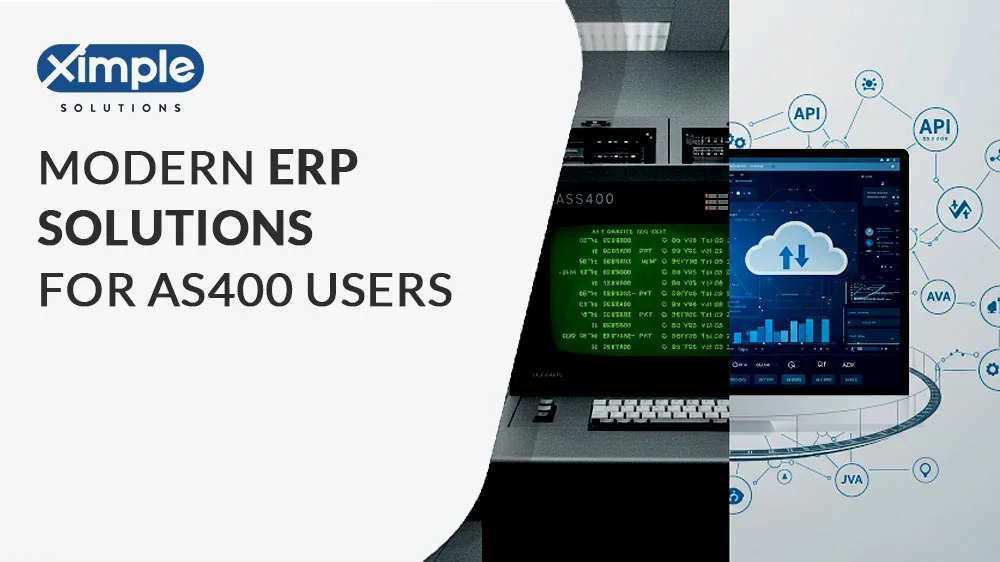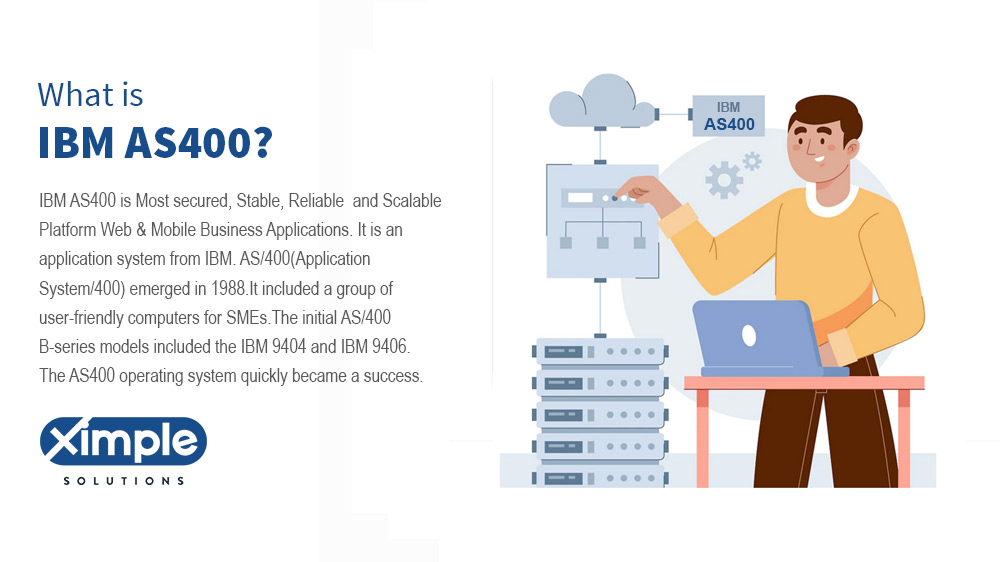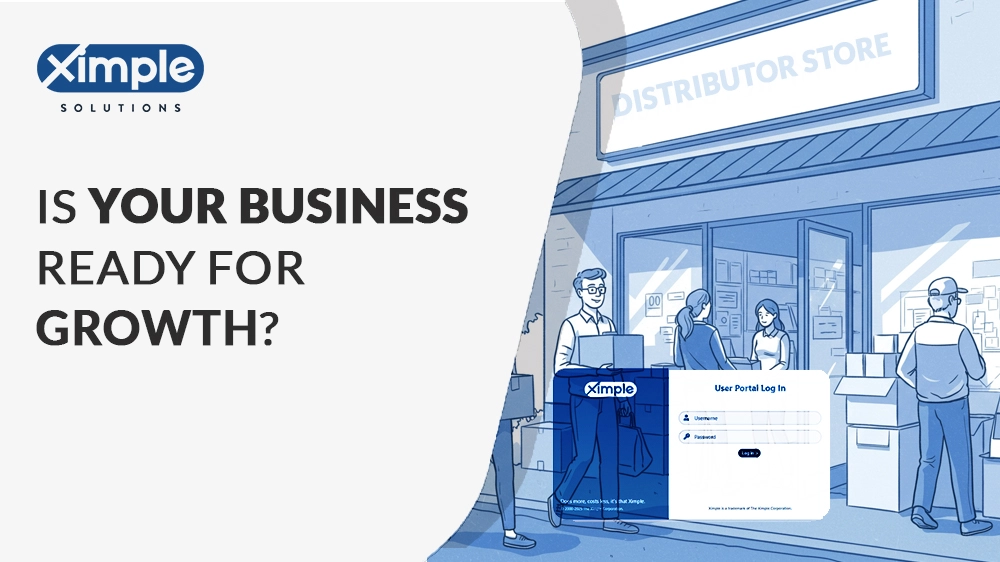IBM AS400 ERP Software: A Modern Guide to Legacy Power

For over three decades, IBM AS400 ERP software—also known as IBM iSeries or IBM i—has been a trusted enterprise solution for businesses managing operations, finance, inventory, and customer data. While some consider it legacy software, the AS400 platform continues to serve thousands of enterprises globally due to its reliability, security, and scalability.
As ERP needs evolve, many businesses are modernizing AS400 systems into cloud-based ERP software using APIs, microservices, and modern technologies like Java and Angular. This blog explores the past, present, and future of AS400 ERP systems, focusing on how distributors and wholesalers can transform their legacy investments into modern ERP solutions
Table of Contents
- Introduction
- What is IBM AS400 ERP Software?
- Key Benefits of IBM AS400 ERP Software
- Challenges of Using Legacy AS400 Systems
- Modernization: Moving from AS400 to Cloud-Based ERP
- Using APIs, Microservices, Java & Angular in ERP Integration
- Is IBM iSeries Still Relevant in Today’s ERP Market?
- Conclusion
- Next Steps

What is IBM AS400 ERP Software?
Introduced in 1988 by IBM, the AS400 (Application System/400) is a family of mid-range business servers designed for small to large enterprises. The system has undergone several rebrandings—from AS400 to iSeries and now IBM i—but the core principle remains the same: delivering a stable and secure platform for enterprise resource planning.
Key features of IBM AS400 ERP:
- Integrated database management system (DB2)
- Multi-user capabilities for ERP environments
- High availability and disaster recovery
- Support for financial software, inventory management, supply chain, and distribution operations
Key Benefits of IBM AS400 ERP Software
1. Stability & Reliability
AS400 servers are renowned for near-zero downtime, making them ideal for critical ERP tasks such as order processing, inventory tracking, and financial reporting.
2. Scalability
Organizations can scale from affordable entry-level models to high-performance 256-core configurations, supporting enterprise-wide ERP implementation across multiple departments and locations.
3. Security
With built-in security protocols and system integrity checks, AS400 helps businesses stay compliant with industry regulations and protect sensitive ERP data.
4. Integration with Enterprise Applications
Through modern APIs, AS400 can seamlessly integrate with CRM, eCommerce, and third-party ERP software, extending its life and utility.
5. Performance in Multi-User ERP Environments
AS400 supports thousands of simultaneous users, making it a robust backend for ERP systems in large wholesale or distribution companies.
Challenges of Using Legacy AS400 Systems
While AS400 systems are robust, they present several limitations in today’s cloud-centric ERP landscape:
- Green-screen UI lacks modern user experience
- Difficulty integrating with modern cloud ERP systems
- Shortage of developers skilled in RPG or COBOL
- High cost and complexity of custom ERP integrations
- Limited mobile access or real-time data analytics capabilities
Modernization: Moving from AS400 to Cloud-Based ERP
To stay competitive, many businesses are modernizing their IBM iSeries ERP systems. This doesn’t always mean replacing AS400 entirely—it can involve hybrid ERP solutions or full migration to cloud ERP software platforms.
Key Modernization Strategies:
- Use APIs to connect legacy AS400 ERP data with cloud applications
- Migrate core functionality to cloud-based ERP software (e.g., Ximple Solutions, SAP, NetSuite)
- Build modern UIs using Java, Angular, or React on top of the AS400 backend
- Containerize AS400 environments with microservices architecture for better scalability and modularity
Using APIs, Microservices, Java & Angular in ERP Integration
Modern ERP platforms utilize APIs and microservices to make systems modular, agile, and scalable.
- APIs allow two-way data communication between AS400 and modern ERP tools (e.g., Salesforce, Shopify)
- Microservices help decompose large ERP systems into manageable services like finance, inventory, or logistics
- Java provides platform-agnostic backend logic to extend or replace AS400 components
- Angular enables development of responsive, mobile-friendly ERP frontends
This approach allows companies to retain the core stability of AS400 while gaining the benefits of modern cloud ERP platforms.
Is IBM iSeries Still Relevant in Today’s ERP Market?
Yes—IBM iSeries ERP software is still widely used in industries like distribution, manufacturing, pharma, and retail, where uptime and transactional integrity are non-negotiable.
However, to remain competitive, businesses must modernize their ERP architecture by:
- Enhancing user interfaces
- Embracing cloud-native features
- Integrating mobile and analytics tools
- Reducing vendor lock-in by using open APIs
Conclusion
IBM AS400 ERP software has earned its reputation as a reliable, secure, and scalable enterprise resource planning platform. However, the future of ERP lies in cloud-based, API-enabled, and modular systems that deliver flexibility, mobile access, and seamless integration.
Whether you continue to leverage AS400 or are planning a migration to modern ERP solutions, the key is to embrace modern technology without discarding the strengths of your legacy system.
Are you still running your business on a legacy AS400 system? Looking to modernize your ERP software with cloud, APIs, and modern tech like Java and Angular?
Contact Ximple Solutions today for a free consultation on how we can help you modernize your AS400 ERP or migrate to a fully cloud-based ERP system tailored for wholesale and distribution businesses.
Book a Free ERP Consultation
Learn More About Cloud ERP for Distributors





